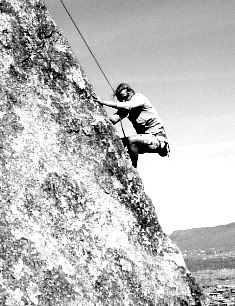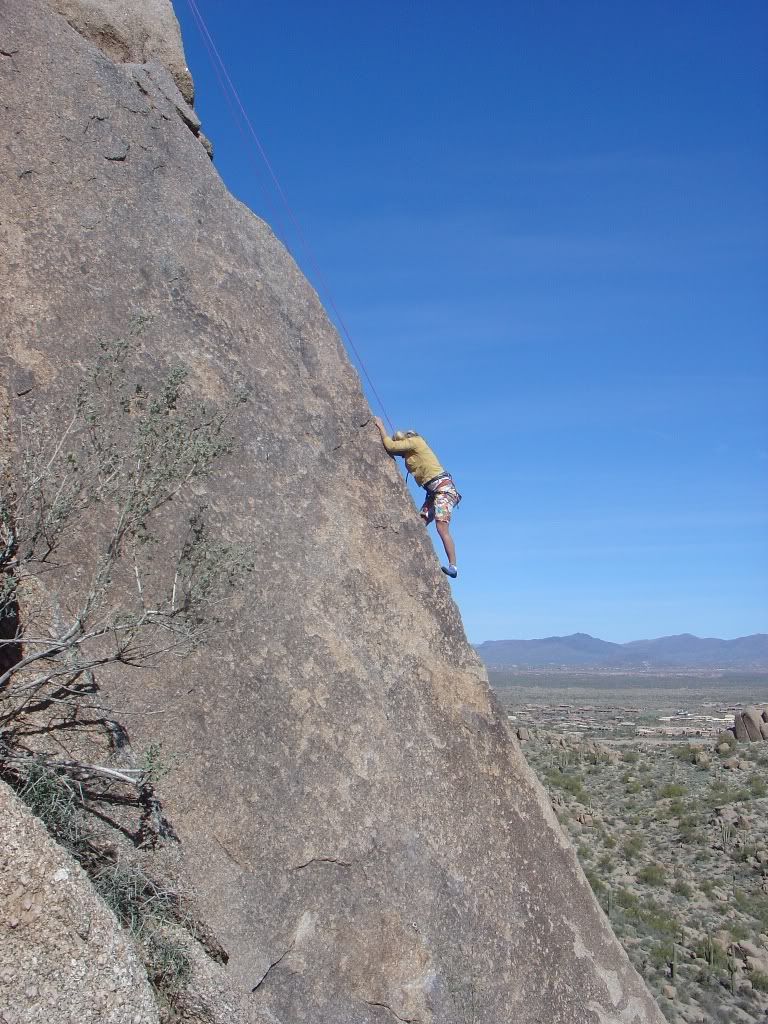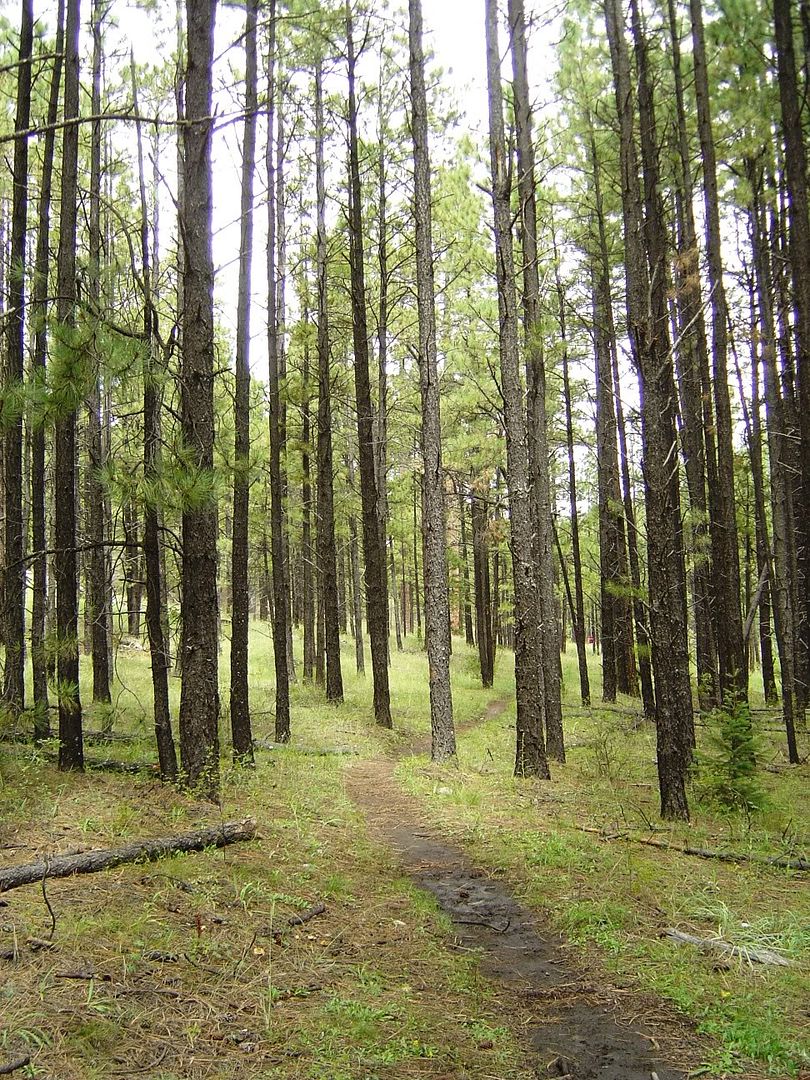If you have no interest in things such as ACL tears, rehab and graft healing, please come back tomorrow. This post is for those who have been devastated by the words "you have torn your ACL". In my case, it was "you have re-torn your ACL," which was immediately followed by me bursting into tears and removing the knife from my heart leaving a raging hole of depression.
If you have been following my rehab from this second ACL reconstruction, you know how awesome my knee has been doing and how anxious and ready I feel to get back to my normal athletic endeavors. You have also been treated to my many rants about slow doctors, physical therapists and how I know how my body feels, etc. blah blah blah.
If you have been following my rehab from this second ACL reconstruction, you know how awesome my knee has been doing and how anxious and ready I feel to get back to my normal athletic endeavors. You have also been treated to my many rants about slow doctors, physical therapists and how I know how my body feels, etc. blah blah blah.
After getting a stern talking too after disclosing to my PT that I have been hiking, I was told the words that every rehabbing patient hates to hear, "don't do it or you will be back here in a year". I have been completely forbid from jogging, rock climbing, riding my bike on anything but the road, most hiking, and pretty much everything else outdoors that I love and want to do. Rather than just blinding follow the words of medical providers, I need to know WHY these things are bad and I need to see the research for myself.
So I am attempting to answer these questions for myself and I will share what I find with you. Now that I am gaining a small working knowledge of medical terms and what they mean, I find it is easier to read the mumbo jumbo white papers on different medical procedures for fixing ACLs and particularly on rehabbing ACLs.
My research concludes that there is a maturation process for an ACL which is varying and extensive. It depends on how quickly the fixation of the graft occurs in your bones tunnels which may be impossible to predict. People who do not form scar tissue easily may not obtain fixation of the graft in the bone tunnel for longer than those who do. My incisions have very little bumps under them even though I have had two surgeries with the same incision points so I am assuming I fall under the category of those who form very little scar tissue. I also read that scientists believe that allografts (cadaver tissue which is what I have) have a slower maturation process than either patellar tendon or hamstrung grafts (autografts).
Another interesting concept brought to mind for me was the neurological components of rehab. I am studying neurology right now in my physiology class and so find this sort of interesting. We have neurological cells running down from our brain to our feet as part of the Peripheral Nervous System (PNS). These contain proprioceptors which are basically sensors that tell our brain to react to something. They also are vital in the movement of muscles. These also get damaged during the surgical or injury process and must rebuild into a network of synapses which are connections where stimulus are passes from nerve cell to another. We must train knee's proprioceptive abilities through balance efforts and firing of the muscle cells. This is one of the reasons that your quad muscle fires so slowly after rehab (a process called recruitment where each muscle cell activates the next until an entire fiber and group of fibers fire in a contraction). This makes sense to me as I still find steps ups and other normal activities to be slower than normal even though the weight is fine.
The other interesting thing is that studies show changes in the ACL and the structure around it for up to 24 months depending on how quickly graft maturation occurs. This means that when I re-tore my ACL at 16 months, while I considered myself completely healed, it is possible that I still had not reached full maturation of the graft.
So what does this mean for me? Well, I need to be smart and possibly listen to my PT more. The body is complicated, you may feel better than you actually are and there is a degree of truth in that you must give your ACL time to mature and strengthen even if you feel great. I still believe in listening to your body, and in shifting time lines depending on the person and the goal. What do I recommend? Get a doctor who has the same rehab philosophies that you do and do what you feel is right. And I recommend doing some research for yourself because it will make you feel better and will prevent you from blindly following or blindly discounting everything your doctor and PT say.
This is a good link for a typical aggressive rehab strategy. This was similar to my first rehab. My second is much slower although I am easily ahead of their current schedule on my own.
Link to Harvard Journal on Speedy Rehabs
So I am attempting to answer these questions for myself and I will share what I find with you. Now that I am gaining a small working knowledge of medical terms and what they mean, I find it is easier to read the mumbo jumbo white papers on different medical procedures for fixing ACLs and particularly on rehabbing ACLs.
My research concludes that there is a maturation process for an ACL which is varying and extensive. It depends on how quickly the fixation of the graft occurs in your bones tunnels which may be impossible to predict. People who do not form scar tissue easily may not obtain fixation of the graft in the bone tunnel for longer than those who do. My incisions have very little bumps under them even though I have had two surgeries with the same incision points so I am assuming I fall under the category of those who form very little scar tissue. I also read that scientists believe that allografts (cadaver tissue which is what I have) have a slower maturation process than either patellar tendon or hamstrung grafts (autografts).
Another interesting concept brought to mind for me was the neurological components of rehab. I am studying neurology right now in my physiology class and so find this sort of interesting. We have neurological cells running down from our brain to our feet as part of the Peripheral Nervous System (PNS). These contain proprioceptors which are basically sensors that tell our brain to react to something. They also are vital in the movement of muscles. These also get damaged during the surgical or injury process and must rebuild into a network of synapses which are connections where stimulus are passes from nerve cell to another. We must train knee's proprioceptive abilities through balance efforts and firing of the muscle cells. This is one of the reasons that your quad muscle fires so slowly after rehab (a process called recruitment where each muscle cell activates the next until an entire fiber and group of fibers fire in a contraction). This makes sense to me as I still find steps ups and other normal activities to be slower than normal even though the weight is fine.
The other interesting thing is that studies show changes in the ACL and the structure around it for up to 24 months depending on how quickly graft maturation occurs. This means that when I re-tore my ACL at 16 months, while I considered myself completely healed, it is possible that I still had not reached full maturation of the graft.
So what does this mean for me? Well, I need to be smart and possibly listen to my PT more. The body is complicated, you may feel better than you actually are and there is a degree of truth in that you must give your ACL time to mature and strengthen even if you feel great. I still believe in listening to your body, and in shifting time lines depending on the person and the goal. What do I recommend? Get a doctor who has the same rehab philosophies that you do and do what you feel is right. And I recommend doing some research for yourself because it will make you feel better and will prevent you from blindly following or blindly discounting everything your doctor and PT say.
This is a good link for a typical aggressive rehab strategy. This was similar to my first rehab. My second is much slower although I am easily ahead of their current schedule on my own.
Link to Harvard Journal on Speedy Rehabs

















3 comments:
Hey, thanks for posting this. I tore my ACL about a month ago and was trying to google when and if I could hike Mt. Whitney. When I asked the Dr., he said flat out "not a good idea, I don't recommend it." And I didn't ask whether he meant not to do it at all or before surgery. I guess I should speak up more at the doc's office but sometimes I feel rushed out of his office. I have a BS in biomedical science, so the "why" really interests me when someone tells me I can't do something. I would have actually liked if he had shown me on the MRI where my ACL should be attached. But I guess if I don't ask, they assume I'm not interested.
Anyway, I guess the point of this is I'm embarking into the world of meeting with doc's and PT's about my knee and I shouldn't feel like I can't ask "why." But thanks for giving some research about why I should listen to their answers to my "why" questions.
Who knows where to download XRumer 5.0 Palladium?
Help, please. All recommend this program to effectively advertise on the Internet, this is the best program!
Allison, you should go ahead and ask at followup visits. My doc showed me everything on the mri's, xrays, and after surgery explained the surgical photos and video they had taken of the inside of the knee.
Nice entry, it's hard to explain how frustrating acl tears are to regular people :(
Post a Comment